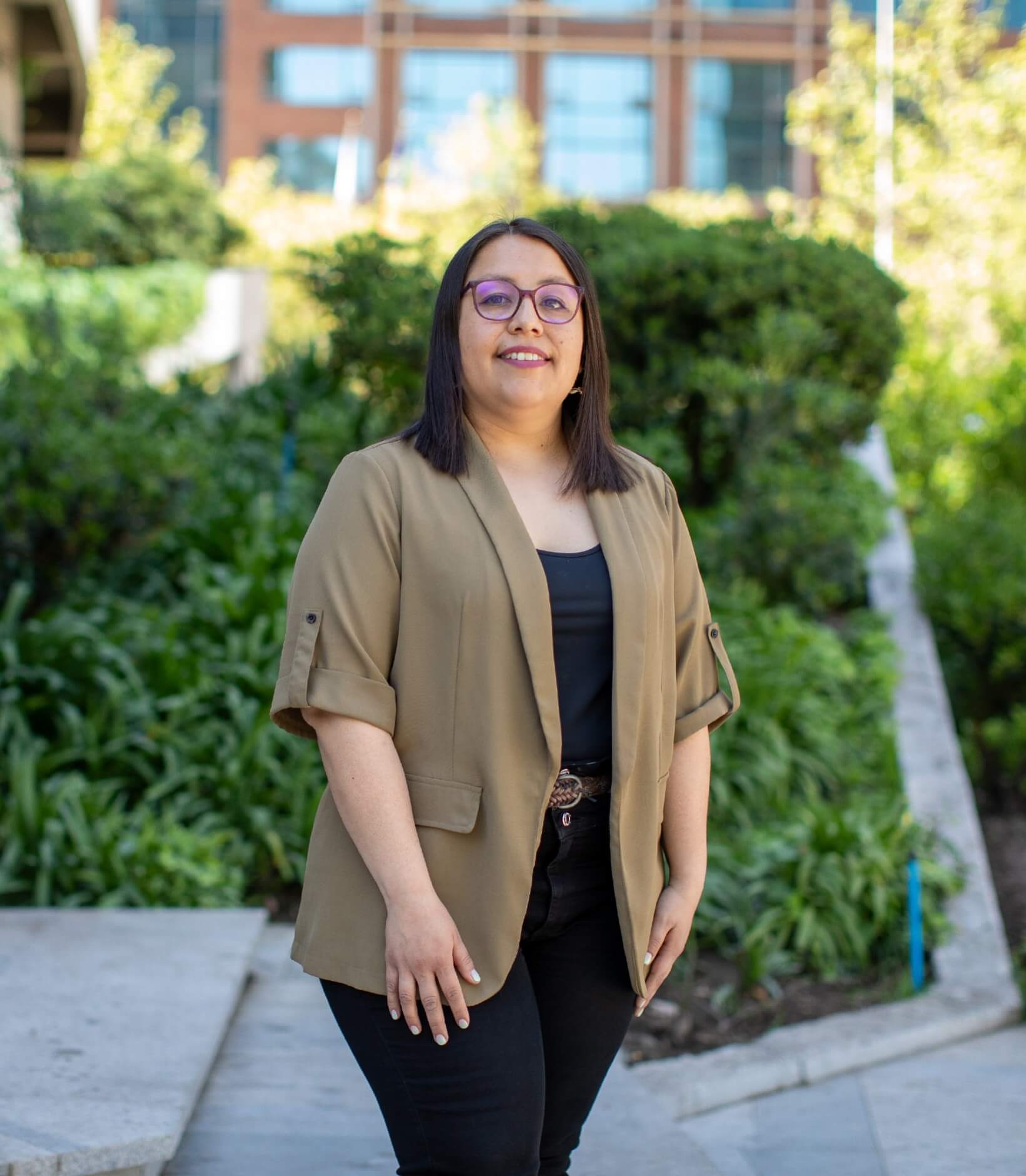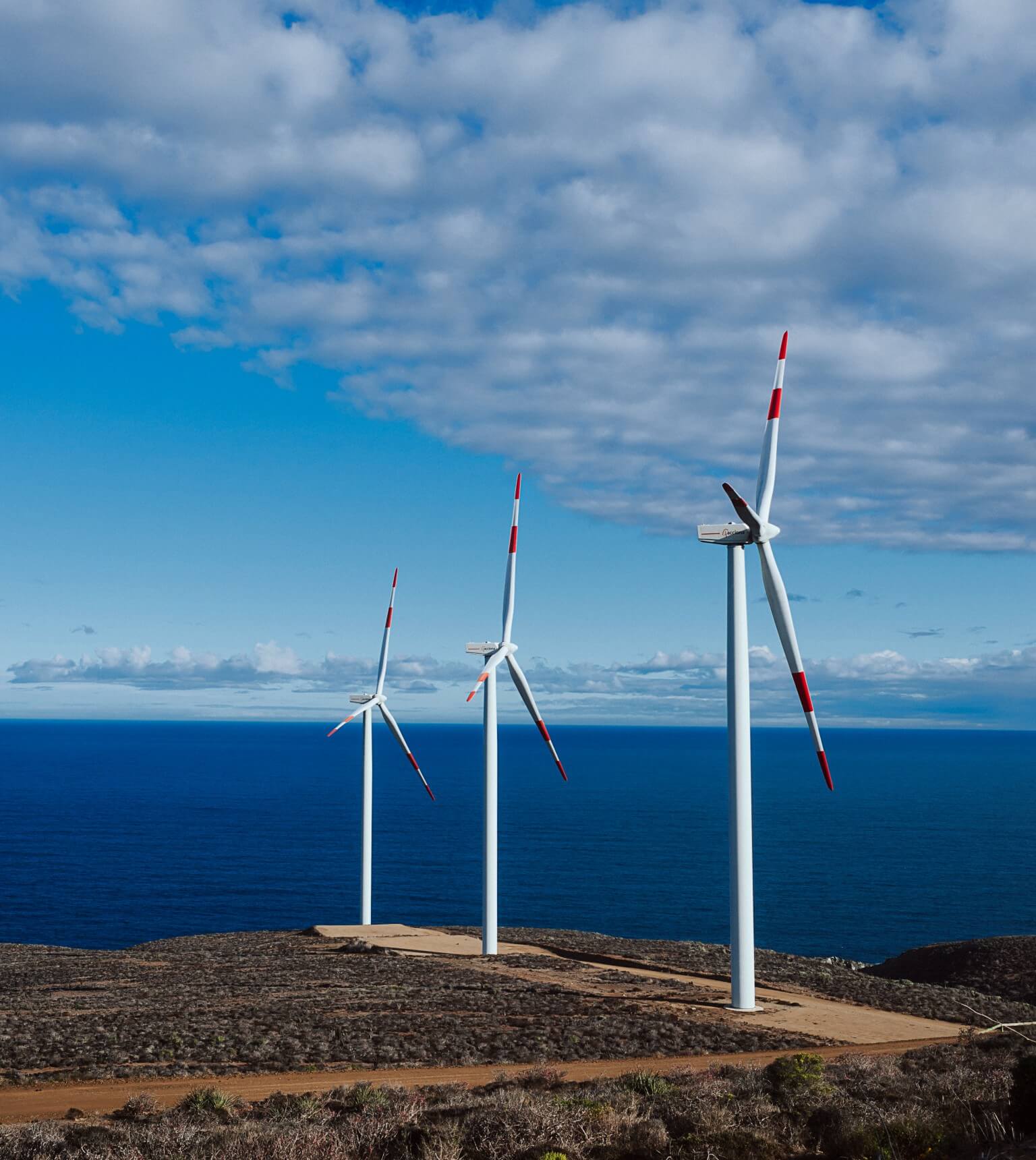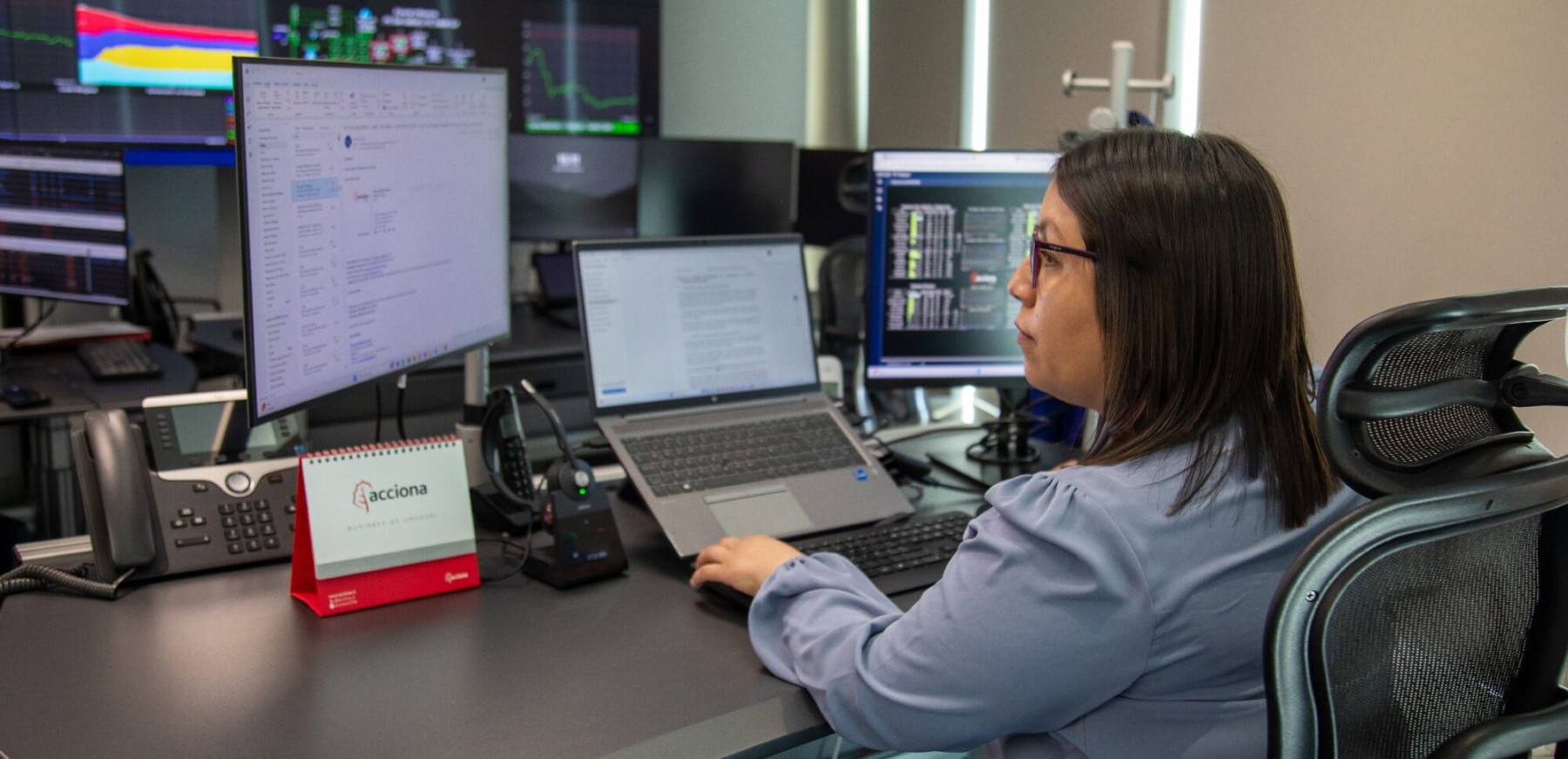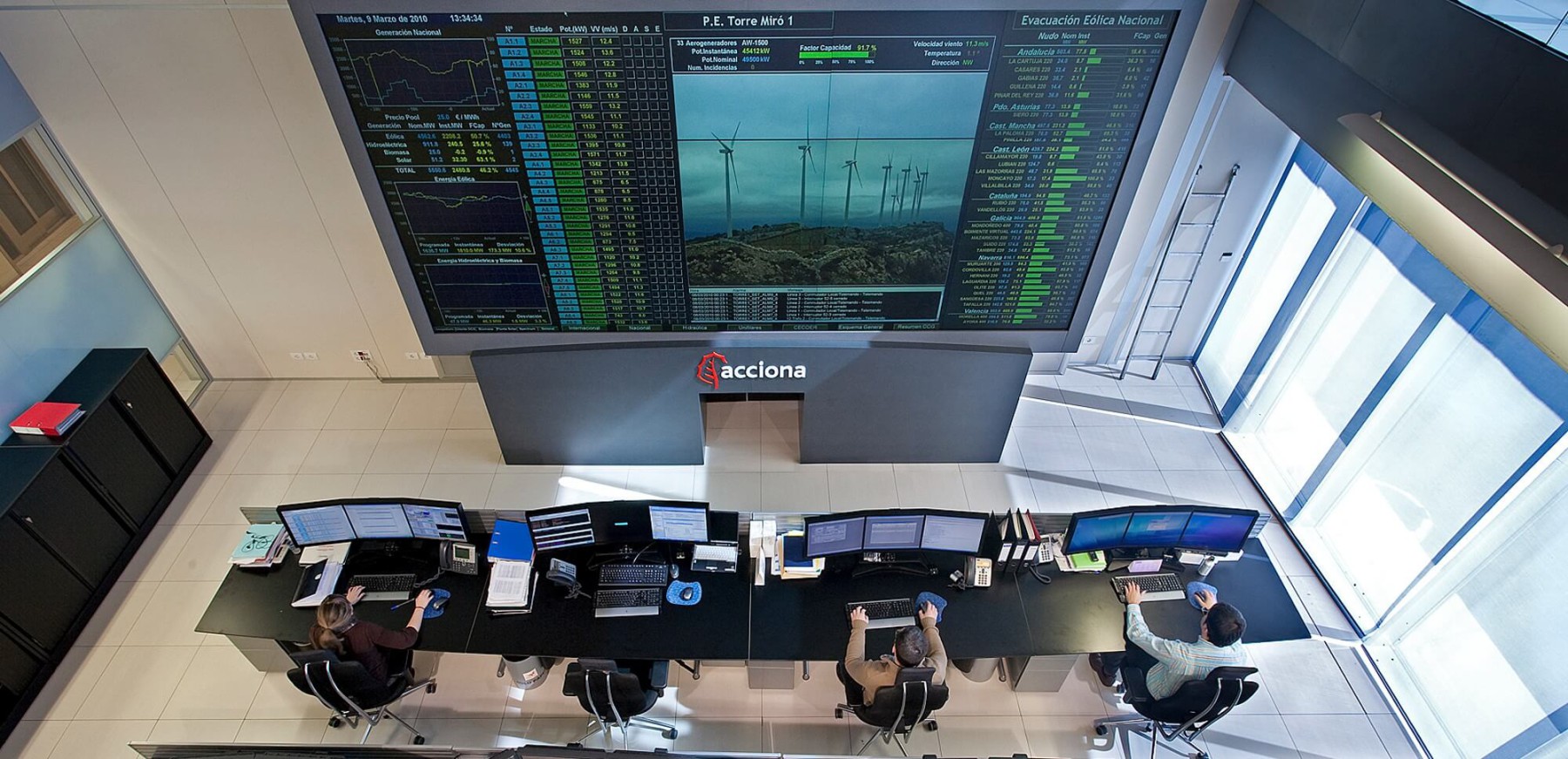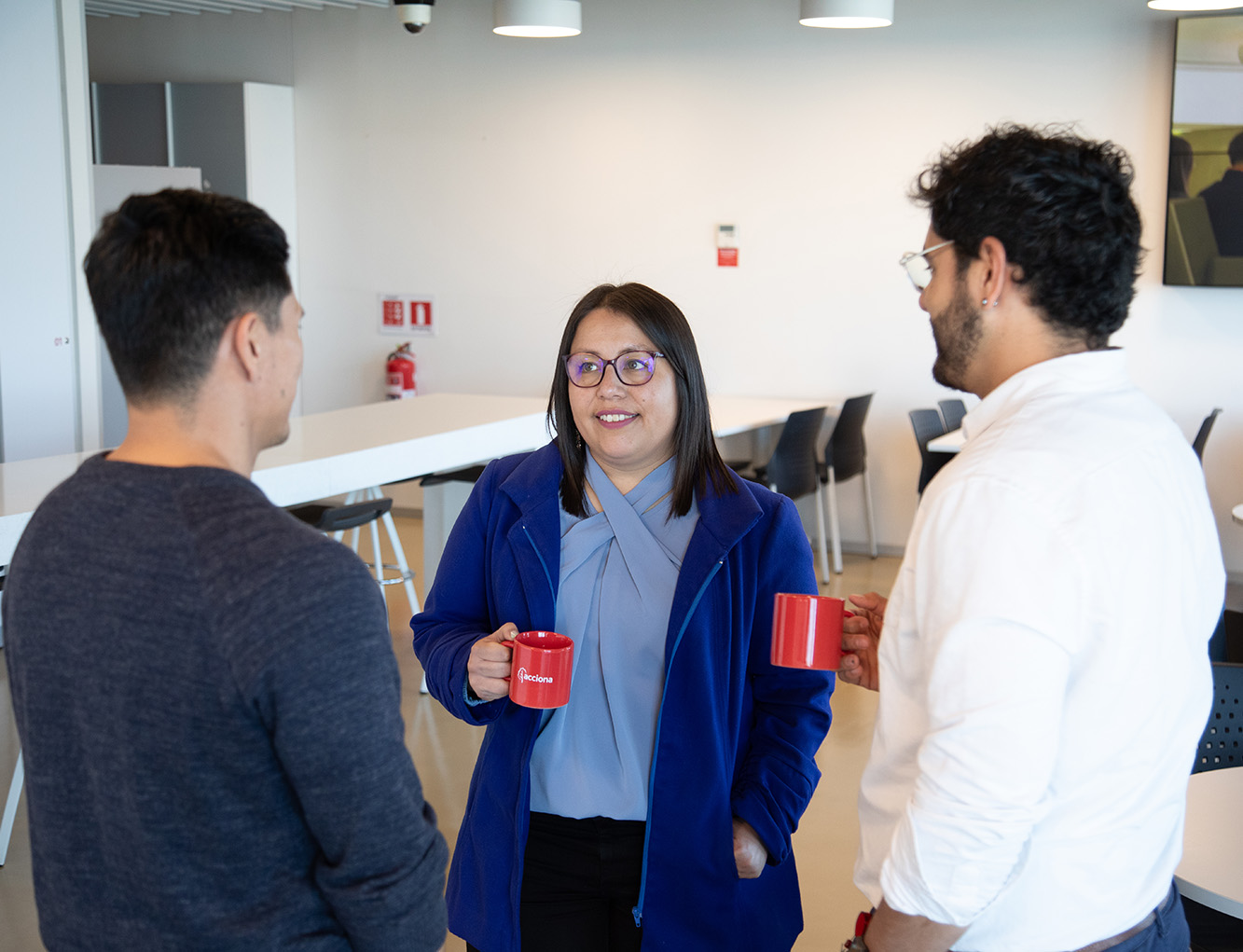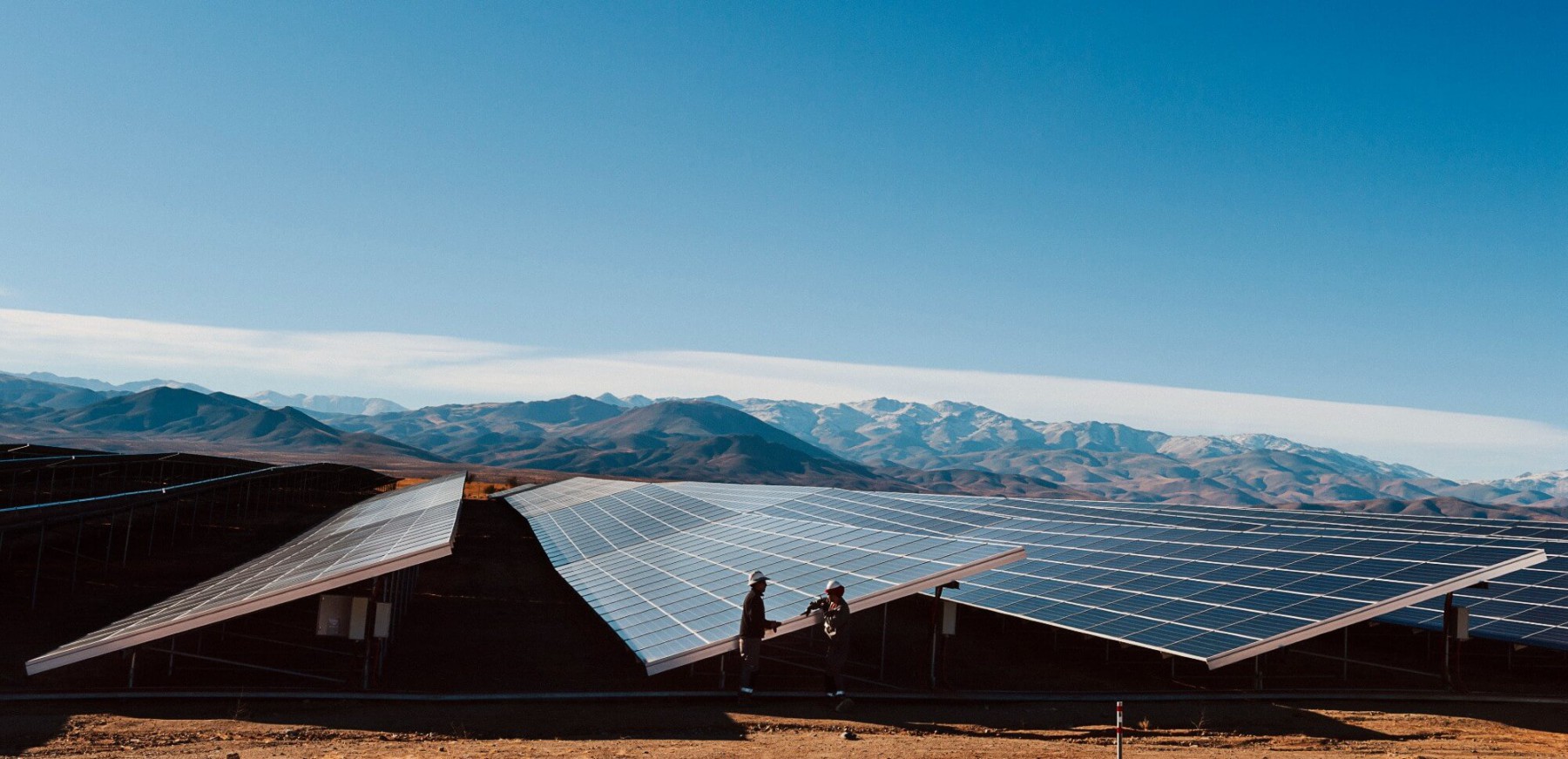At the Chile Renewable Energy Control Center, she began managing ACCIONA’s energy commercialization in a “long and narrow” country with significant production discrepancies between the north and south. The challenge – and the adrenaline – motivated her: “I enjoy real-time operations. It’s very stressful. It was also challenging to work night shifts… You have to make decisions quickly, act fast, follow procedures, all while adhering to safety protocols. It’s pressure not everyone can handle.”
“Working at CECOER is like the ER in a hospital: some days nothing happens, but then there are shifts where everything happens at once.”
Her main tasks involved operating wind turbines and photovoltaic panels, detecting issues, managing high-voltage stations, and monitoring substations and interconnections where energy was injected. “I see it as kind of like an ER; there are shifts where nothing happens, and they drag on, but then there are shifts where everything happens at once.”
Over time, Génesis’ CECOER also began operating renewable energy for other countries like Peru and even Spain, where they monitor assets in the Catalonia region.
Why not me?
After three years as a CECOER operator, amid frenetic days in front of screens, Génesis came across a job posting for a role that would allow her to grow: ACCIONA Energía was looking for someone to head the control center. “The ad was aimed at someone with more experience than I had,” she says. However, perhaps because she had already conquered the immense challenge of electrical engineering, or because of her years of handling real-time challenges, Génesis had a gut feeling: “So I talked to my boss and told him I wanted the job, that I was capable of doing it.”
After a series of interviews, Génesis became the first coordinator of a control center in Latin America. However, before taking the reins of CECOER, she needed to familiarize herself with her new responsibilities, which also meant crossing the Atlantic to discover a new continent. It was time to take a leap to Spain, to ACCIONA Energía’s most important global control center, through a program known as a role swap.
A change of roles (and discovering Europe)
Génesis speaks fondly and admiringly of Pamplona, of the history echoed in its streets and churches. “I fell in love,” she sums up. She was also surprised by small details, like the absence of overhead cables in the streets. “When you walk around Santiago, there are wires everywhere – for power, internet, data.”
During the three months she spent training as a control center coordinator, she noticed other, more significant details: “There were many women across the board, both as operators and in CECOER’s back-office and in important managerial roles. It was really nice to see a much larger or more normalized presence of women,” she recalls. She sums it up this way: “More than noticing anything out of the ordinary, it was the fact that the presence of women wasn’t a big deal.”
